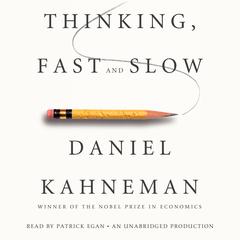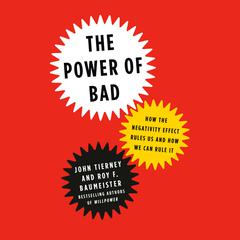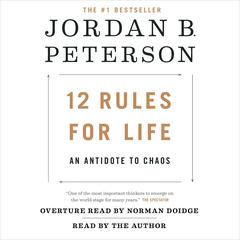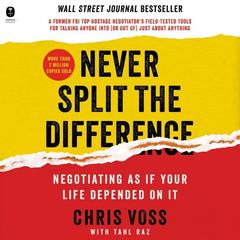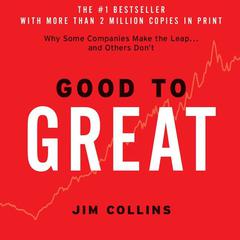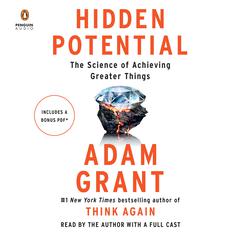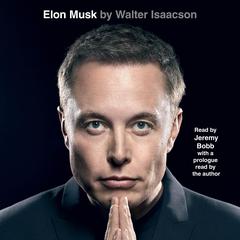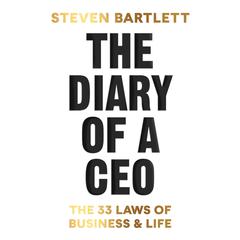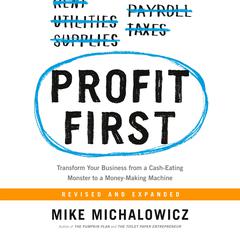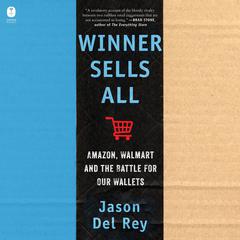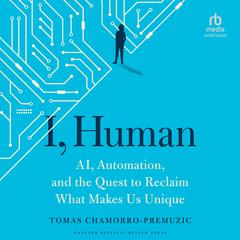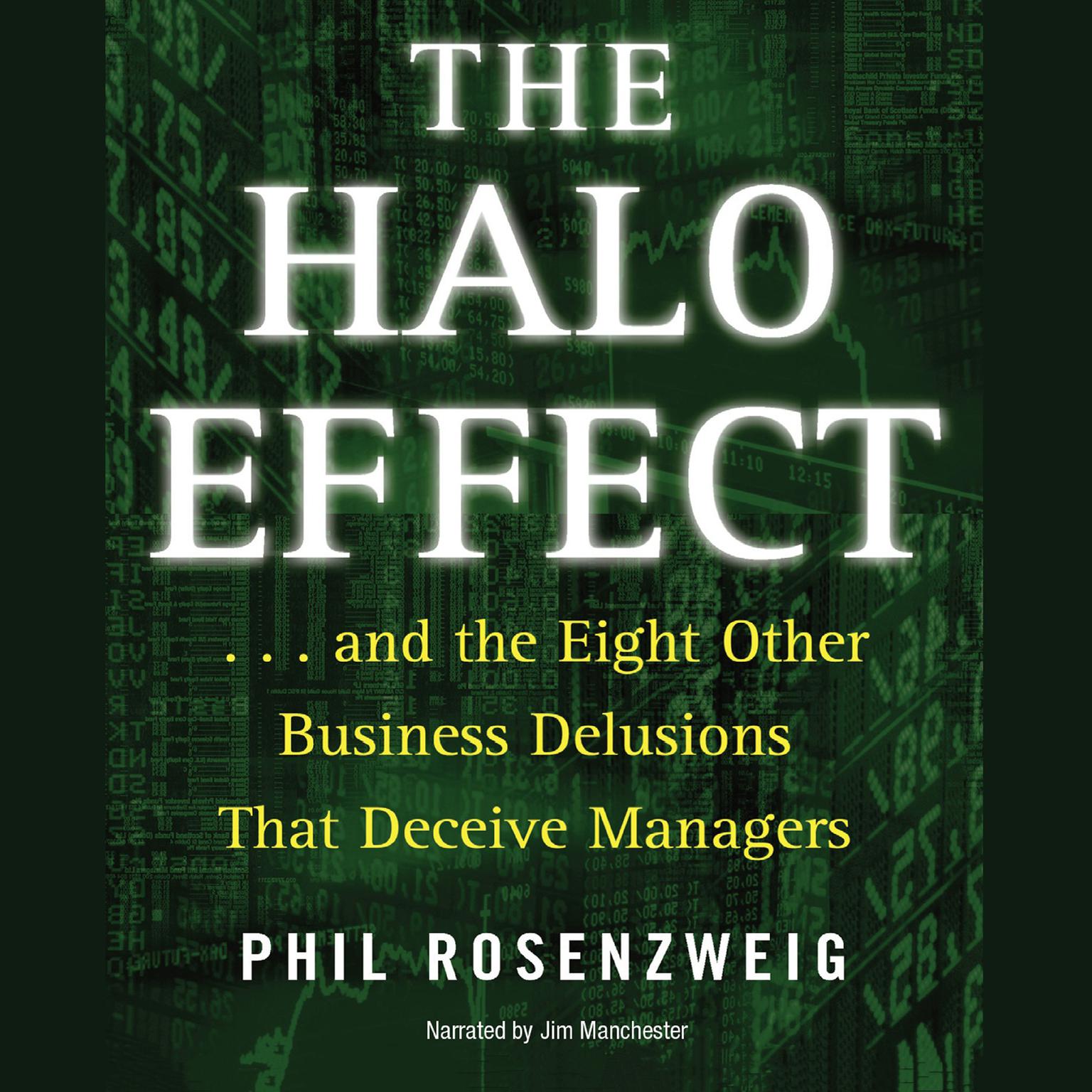 Play Audiobook Sample
Play Audiobook Sample
The Halo Effect: … and the Eight Other Business Delusions that Deceive Managers Audiobook
 Play Audiobook Sample
Play Audiobook Sample
Quick Stats About this Audiobook
Total Audiobook Chapters:
Longest Chapter Length:
Shortest Chapter Length:
Average Chapter Length:
Audiobooks by this Author:
Publisher Description
Much of our business thinking is shaped by delusions—errors of logic and flawed judgments that distort our understanding of the real reasons for a company's performance. In a brilliant and unconventional book, Phil Rosenzweig unmasks the delusions that are commonly found in the corporate world. These delusions affect the business press and academic research, as well as many bestselling books that promise to reveal the secrets of success or the path to greatness. Such books claim to be based on rigorous thinking, but operate mainly at the level of storytelling. They provide comfort and inspiration, but deceive managers about the true nature of business success.
Download and start listening now!
"After reading this, if you are a consultant, it will raise the bar on the level of evidence you bring to clients. If you are a client or consultant you'll be hard pressed to believe in any of the business books professing to have the answer. Excellent destruction job on the misplaced confidence of most management books."
— Stephen (4 out of 5 stars)
Quotes
-
“A refreshing antidote to the glut of simplistic books about achieving high performance…[A] smart and spicy critique.”
— Publishers Weekly -
“I was taken by this book. It destroys myths concerning the attribution of success in the management literature using potent empirical arguments. It should stand as one of the most important management books of all time, and an antidote to those bestselling books by gurus presenting false patter and naive arguments.”
— Nassim Nicholas Taleb, author of Fooled by Randomness -
“Rosenzweig doesn’t only poke fun at the mass of bad writing and bad science in the management world. He explains why it is so bad—and how you can learn from it, despite the efforts of the authors.”
— John Kay, Financial Times columnist and author of Everlasting Light Bulbs
The Halo Effect Listener Reviews
-
" It isn't long as is, but it really has the content of a Kindle Single. That content seems legit, with all of the "delusions" he cites having some example from popular business literature. They get a little banal after the first one though; if you've ever read an Internet comment thread you're probably familiar with delusion number two - correlation is not causation. The author also has an irritating habit of explaining the conclusions of faulty research, but not of the (few) examples of valid research he uses as counterpoints. Maybe it's a test to see if I'm interested enough in something that could increase performance by 10% to even look up the citation. "
— Drew, 2/5/2014 -
" One of the best business book I have ever read. It explained a lot of things that were and are happening around me and in the corporate world in general. "
— Dimitri, 2/1/2014 -
" A good read. As the title suggests the book delves into biases that we often all prey to when trying to decipher the reasons behind a company's performance. "
— Deepak, 1/26/2014 -
" A quick and interesting look at hindsight bias and how it can taint our views on the past and impact our thoughts on causation versus correlation. Overwhelming theme is when it comes to research garbage in equals garbage out. "
— Adam, 1/18/2014 -
" Important concept, one trick writing and one basic idea. I suppose if you are going to read one business book, though, this one should be it. "
— Tal, 1/15/2014 -
" The Halo Effect had a few good passages but in the end there was nothing new which I could take with me. I wouldn't recommend this book. "
— Sebastiano, 1/11/2014 -
" A very readable book that shows the "the secrets of succcess" that are written after the fact are the result of success and not the cause. "
— Nora, 7/5/2013 -
" My favorite business book ever. Phil effectively shows why many of the business books out there are fundamentally flawed and may lead to dangerous management practices. He gives great suggestions for avoiding those errors in thinking and evaluating performance. "
— Mark, 1/23/2013 -
" Taking a new twist on the old computer lingo GIGO (Garbage In Garbage Out), the author shows you why nearly every study of business and business strategy is fundamentally flawed before it ever even get's published. This helped me to articulate why I've always thought most business books are rubbish. "
— Curtis, 9/3/2012 -
" A worthwhile read which will change how (or if) you read business books or cases) through an exploration of how selection bias often drives interpretation. "
— Bobby, 6/30/2012 -
" It helped me out to understand all the other business book I had read before. It's a "must-read" for sure! "
— Juliana, 2/17/2012 -
" Should be common sense, but like everything else its not common to most. "
— Leon, 12/12/2011 -
" if you've read the black swan and enjoyed it, this is the perfect follow up book to read. essential for anyone starting their own companies. or perhaps not, sometimes too much knowledge is a dangerous thing. "
— Harj, 11/27/2011 -
" If you read business books, you should read this business book. You'll read all others with a more skeptical (and intelligent) eye. "
— Evan, 11/13/2011 -
" Really nice counterpoint to books like Good to Great and Built to Last. "
— Nathan, 5/6/2011 -
" The Halo Effect had a few good passages but in the end there was nothing new which I could take with me. I wouldn't recommend this book. "
— Sebastiano, 3/25/2011 -
" I don't normally put books I'm reading for work on here, but this one is absolutely brilliant.<br/><br/>Merged review:<br/><br/>I don't normally put books I'm reading for work on here, but this one is absolutely brilliant. "
— Stephen, 3/12/2010 -
" My favorite business book ever. Phil effectively shows why many of the business books out there are fundamentally flawed and may lead to dangerous management practices. He gives great suggestions for avoiding those errors in thinking and evaluating performance. "
— Mark, 1/20/2010 -
" It's a one trick pony, but it's a decent trick: calling out all the business pseudo-science for confusing dependent variables for independent variables. "
— Ryan, 11/16/2009 -
" One of the best business book I have ever read. It explained a lot of things that were and are happening around me and in the corporate world in general. "
— Dimitri, 7/28/2009 -
" Should be common sense, but like everything else its not common to most. "
— Leon, 6/29/2009 -
" A nifty debunking of all those fatuous books sitting in the 'management' shelves in the 'business' sections of your local chain bookstore. "
— Paul, 2/17/2009
About Phil Rosenzweig
Phil Rosenzweig is a professor at IMD in Lausanne, Switzerland, where he works with leading companies on questions of strategy and organization. He earned his PhD from the Wharton School, University of Pennsylvania, and spent six years on the faculty of Harvard Business School. He is a native of Northern California.
About Jim Manchester
Jim Manchester is a retired English and theater teacher in Rhode Island. He has directed and acted in many theatrical productions over the years and has done voice-over work in the Providence area. Jim resides in the lovely seaport town of Bristol, Rhode Island.





